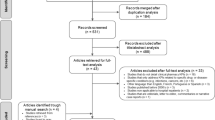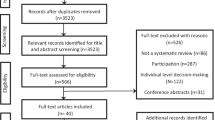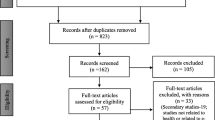Abstract
Background
The Internet should, in theory, facilitate access to peer-reviewed scientific articles for orthopaedic surgeons in low-income countries (LIC). However, there are major barriers to access, and most full-text journal articles are available only on a subscription basis, which many in LIC cannot afford. Various models exist to remove such barriers. We set out to examine the potential, and reality, of journal article access for surgeons in LIC by studying readership patterns and journal access through a number of Internet-based initiatives, including an open access journal (“PLoS Medicine”), and programs from the University of Toronto (The Ptolemy Project) and World Health Organization (WHO) (Health InterNetwork Access to Research Initiative [HINARI]).
Questions/purposes
Do Internet-based initiatives that focus on peer-reviewed journal articles deliver clinically relevant information to those who need it? More specifically: (1) Can the WHO’s program meet the information needs of practicing surgeons in Africa? (2) Are healthcare workers across the globe aware of, and using, open access journals in a manner that reflects global burden of disease (GBD)?
Methods
We compared actual Ptolemy use to HINARI holdings. We also compared “PLoS Medicine” readership patterns among low-, middle-, and high-income regions.
Results
Many of the electronic resources used through Ptolemy are not available through HINARI. In contrast to higher-income regions, “PLoS Medicine” readership in Africa is proportional to both the density of healthcare workers and the GBD there.
Conclusions
Free or low-cost Internet-based initiatives can improve access to the medical literature in LIC. Open access journals are a key component to providing clinically relevant literature to the regions and healthcare workers who need it most.





Similar content being viewed by others
References
American Academy of Orthopaedic Surgeons. Your orthopaedic connection: Patient education library. Available at: http://orthoinfo.aaos.org/. Accessed April 2, 2010.
Beveridge M, Howard A, Burton K, Holder W. The Ptolemy project: a scalable model for delivering health information in Africa. BMJ. 2003;327:790–793.
BioMed Central. BioMed Central open access waiver fund. Available at: http://www.biomedcentral.com/info/authors/oawaiverfund/. Accessed November 24, 2009.
Burton K, Howard A, Beveridge M. Relevance of electronic health information to doctors in the developing world: results of the Ptolemy project’s internet-based health information study (IBHIS). World J Surg. 2005;29:1194–1198.
Davis PM, Lewenstein BV, Simon DH, Booth JG, Conolly MJL. Open access publishing, article downloads, and citations: randomised controlled trial. BMJ. 2008;337:a568.
Derbew M, Beveridge M, Howard A, Byrne N. Building surgical research capacity in Africa: the Ptolemy project. PLoS Medicine. 2006;3:e305.
Directory of Open Access Journals. Available at: http://www.doaj.org/. Accessed March 10, 2010.
Gellman H, ed. eMedicine Orthopaedics. Available at: http://emedicine.medscape.com/orthopedic_surgery. Accessed April 2, 2010.
Global HELP (Health Education using Low-cost Publications). Available at: http://www.global-help.org. Accessed April 2, 2010.
Mann F, von Walter B, Hess T, Wigand RT. Open access publishing in science. ACM. 2009;52:135–139.
Noordin S, Wright J, Howard A. Global access to literature on trauma. Clin Orthop Relat Res. 2008;466:2418–2421.
Noordin S, Wright J, Howard A. Global relevance of literature on trauma. Clin Orthop Relat Res. 2008;466:2422–2427.
Open Access Scholarly Information Sourcebook (OASIS). Open access journals. Available at: http://www.openoasis.org/index.php?option=com_content&view=article&id=155&catid=78&Itemid=326. Accessed March 10, 2010.
Orthopaedic Trauma Association. OTA Discussion Forums. Available at: http://www.ota.org/discussion/index.html. Accessed April 2, 2010.
Public Library of Science. About PLoS. Available at: http://www.plos.org/about/index.html. Accessed October 10, 2009.
Public Library of Science. PLoS ONE. Available at: http://www.plosone.org/home.action. Accessed November 24, 2009.
Public Library of Science. Publication Fee FAQs. Available at: http://www.plos.org/about/faq.html#pubquest. Accessed November 24, 2009.
Sechrest RC. eOrthopod. Available at: http://www.eorthopod.com/. Accessed April 2, 2010.
Smith H, Bukirwa H, Mukasa O, Snell P, Adeh-Nsoh S, Mbuyita S, Honorati M, Orji B, Garner P. Access to electronic health knowledge in five countries in Africa: a descriptive study. BMC Health Serv Res. 2007;7:72.
The PLoS Medicine Editors. The impact factor game. It is time to find a better way to assess the scientific literature. PLoS Med. 2006;3:e291.
Villafuerte-Galvez J, Curioso W, Gayoso O. Biomedical journals and global poverty: is HINARI a step backwards? PLoS Medicine. 2007;4:e220.
Wheeless CR, ed. Wheeless’ Textbook of Orthopaedics. Available at: http://www.wheelessonline.com. Accessed April 2, 2010.
World Health Organization. Global Burden of Disease (GBD). Available at: http://www.who.int/healthinfo/global_burden_disease/en/. Accessed October 10, 2009.
World Health Organization. World Health Statistics 2006. Geneva, Switzerland: World Health Organization; 2006.
World Health Organization. Health InterNetwork Access to Research Initiative (HINARI). Available at: www.who.int/hinari/en/. Accessed October 23, 2009.
Acknowledgments
We thank “PLoS Medicine” for access to data.
Author information
Authors and Affiliations
Corresponding author
Additional information
Each author certifies that he or she has no commercial associations (eg, consultancies, stock ownership, equity interest, patent/licensing arrangements, etc) that might pose a conflict of interest in connection with the submitted article.
The present study involved the analysis of anonymized Internet log files that cannot be tracked to individual human subjects. All participants in the Ptolemy project have provided written consent for such use. Ethics approval was obtained from the University of Toronto.
This work was performed at the Hospital for Sick Children, Toronto, Ontario, Canada.
About this article
Cite this article
Doughty, K., Rothman, L., Johnston, L. et al. Low-income Countries’ Orthopaedic Information Needs: Challenges and Opportunities. Clin Orthop Relat Res 468, 2598–2603 (2010). https://doi.org/10.1007/s11999-010-1365-x
Published:
Issue Date:
DOI: https://doi.org/10.1007/s11999-010-1365-x




